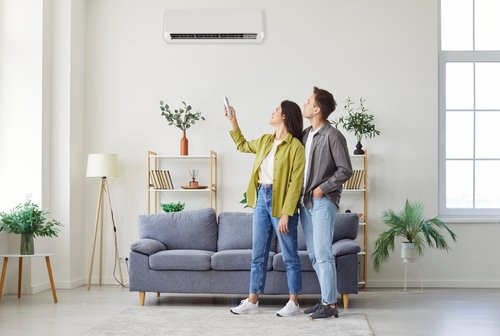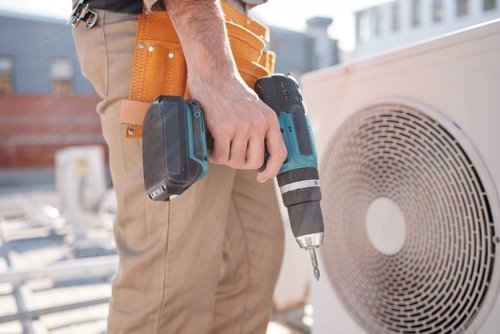Strange Noises from Your HVAC? Here’s When to Call a Pro in Delmarva

It’s one thing to hear the gentle hum of your HVAC system. But if you start hearing strange noises from your air conditioner or furnace and it suddenly starts banging, screeching, or rattling, that’s a different story.
For Delmarva homeowners, strange HVAC noises are more than just an annoyance — they can signal serious issues that lead to higher energy bills, costly repairs, or even system failure.
In this guide, we’ll break down what each noise might mean, when it’s safe to troubleshoot, and when you should call a professional HVAC technician in the Delmarva Peninsula.
Why Your HVAC Might Be Making Strange Noises
HVAC systems naturally make some sound as fans, motors, and refrigerants work together. But sudden, loud, or unusual noises usually point to:
- Loose or damaged parts (due to vibration, wear, or corrosion from coastal air)
- Motor or blower problems
- Obstructions in the system (like debris in outdoor units)
- Imbalance or misalignment of moving components
- Ductwork issues (expansion, contraction, or loose joints)
In Delmarva, the humid, salty environment can accelerate wear on metal parts, making odd noises more common if systems aren’t regularly maintained.
Common HVAC Noises and What They Mean
1. Banging or Clanking
- Possible Cause: Loose or broken components inside the compressor or blower.
- Risk: Can cause further damage if ignored.
- Action: Turn off the system and call a pro — continuing to run it can make things worse.
2. Screeching or Squealing
- Possible Cause: Worn fan belt, damaged motor bearings, or unlubricated moving parts.
- Risk: Belts can snap; motors can seize.
- Action: Schedule repair promptly. Often a quick fix if caught early.
3. Rattling or Vibrating
- Possible Cause: Loose screws, panels, or components; sometimes debris in outdoor units.
- Risk: Usually minor but can worsen over time.
- Action: Check for visible debris (sticks, leaves) around the outdoor unit. If noise persists, call a technician.
4. Hissing or Whistling
- Possible Cause: Air leaks in ductwork, refrigerant leaks, or internal pressure issues.
- Risk: Refrigerant leaks can harm the system and reduce cooling capacity.
- Action: Call a professional — especially for refrigerant concerns.
5. Buzzing or Humming
- Possible Cause: Electrical issues, failing contactors, or loose wiring.
- Risk: Electrical faults can be dangerous.
- Action: Shut down power to the system and contact an HVAC technician immediately.
When to Call a Professional in Delmarva
You should contact an HVAC professional if:
- The noise is loud, sudden, or worsening.
- You notice a change in performance (uneven heating/cooling, weak airflow).
- There are burning smells, leaks, or visible sparks.
- Your system is older and hasn’t been serviced recently.
How to Prevent Noisy HVAC Problems
Preventative maintenance is the best way to keep your system quiet and efficient:
- Seasonal tune-ups before summer and winter.
- Cleaning and lubricating moving parts.
- Tightening electrical connections and fasteners.
- Checking ductwork for leaks and secure connections.
At US Heating & Air, our maintenance plans are designed to address Delmarva’s unique climate challenges — extending system life and reducing unexpected breakdowns.

Final Takeaway
Delmarva homeowners can protect their comfort — and their wallets — by calling US Heating & Air at the first sign of trouble.
Schedule your HVAC inspection today and keep your system running quietly and efficiently.
FAQs: Strange HVAC Noises in Delmarva
Is a rattling noise always serious?
Not always. Sometimes it’s just a loose panel or debris. But if it continues after basic checks, call a professional.
Can I fix screeching or squealing myself?
Belt or motor issues require professional tools and expertise. DIY repairs can cause more damage.
How soon should I call a technician for loud banging?
Immediately. Loud banging can indicate internal damage that will worsen quickly.
